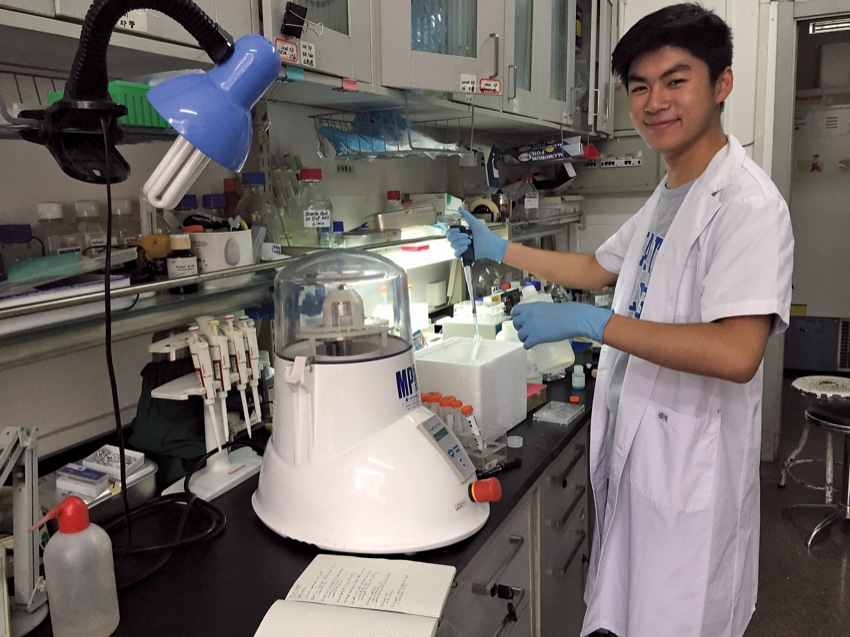Cancer research in China

Raymond Zhang ’17, who seeks to better understand cancer, this summer joined the global effort to find a cure.
As an awardee of a Wheaton Davis International Fellowship, he traveled to China to conduct research on the molecular mechanisms of cancer and shadow physicians at Peking Union Medical College (PUMC) in Beijing.
Zhang, a biochemistry major at Wheaton, has significant research experience under his belt. In 2014, he served as a Carolina Summer Fellow for the University of North Carolina School of Medicine, where he tested the efficacy of preclinical chemotherapy drugs, among other projects.
As a Wheaton student, he works in Visiting Professor of Chemistry Hilary Gaudet’s lab. He helped conduct experiments showing that methylmercury treatment (in small quantities) promotes breast cancer cell proliferation.
From the get-go, “he really wanted to come in and talk about research,” said Gaudet, adding that Zhang proactively reached out to her to inquire about her research and share with her data from his experiments. “His excitement about research and science is notable.”
In China, he found that science is a shared language across nationalities. “Our experiments used the exact same techniques as labs in the U.S. Equipment and materials were even from the same companies I’ve used before,” he said.
His Chinese colleagues used English in some of the more technical lab meetings and presentations. “It’s amazing how they have to switch between languages on a daily basis for their job. It must be so difficult,” Zhang said.
During his time following physicians in an outpatient clinic, Zhang witnessed bedside procedures, including a lumbar puncture (spinal tap), bone marrow biopsies and several tracheal intubations. He primarily shadowed in a general medicine department that dealt with unexplained illnesses, where medical professionals diagnosed patients before sending them to a specialized ward.
“The most exciting and frightening moments happened when patients’ vitals would start dropping and a crowd of doctors would rush to the rescue. I tried my best to not get in the way,” he said.
Zhang said his experience at PUMC exposed him to various types of cancer. “Many of those unexplained illnesses turned out to be cancer somewhere in the body—and too often—the prognosis was not good.”
His time in China has motivated him to dedicate his career to helping cancer patients. He believes that in his lifetime, a cure will be found. “I would be honored to be part of such a historic feat.”
Science is a universal language across countries, but so is a love for camaraderie and good food. Zhang’s Chinese colleagues were warm and welcoming, and “treated me like family from the moment I stepped into the lab,” he said.
Among his favorite memories: enjoying a Chinese holiday called Duanwu (Dragon Boat) Festival with other graduate students in the lab. “We celebrated and hung out for most of the afternoon, and we all went out for barbecue later that night. It was a great day,” he said.
